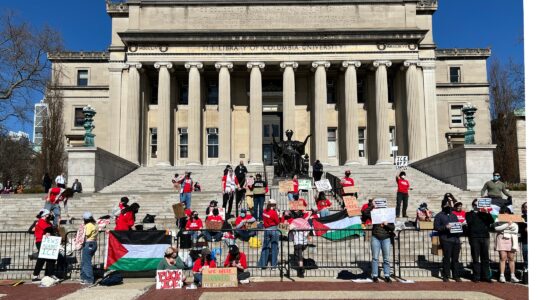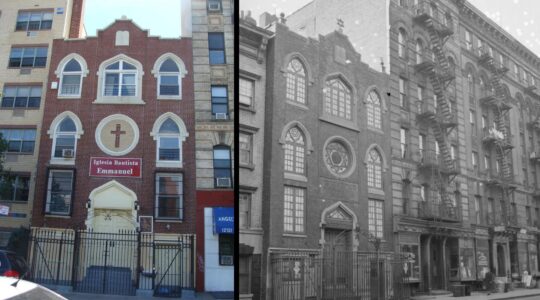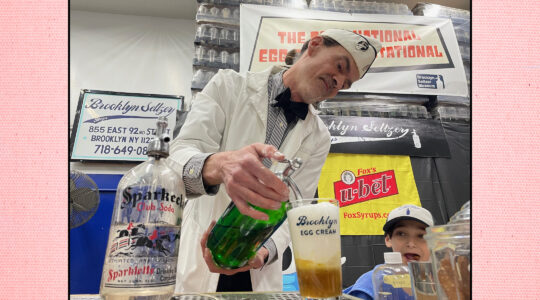There have been many films that explore the pathology and sociology of fascist movements. It’s a subject perhaps better suited to documentary than to fiction simply because the issues are a bit too complex, the strands of race, ethnicity, class and “tribal” allegiance too densely interwoven for dramatization within the allotted time of a conventional feature film. That is not to say it can’t be done; some of Rainer Werner Fassbinder’s best films are covert — and occasionally overt — ruminations on the subject, given the added spin of Fassbinder’s own particular take on queer politics.
Fassbinder comes fitfully to mind immediately when you see “Brotherhood,” a first feature by Danish filmmaker Nicolo Donato, which opens on Aug. 6. Donato has fashioned an unlikely gay love story out of the newspaper headlines that are on the front page of major European cities everyday, with jack-booted neo-Nazis attacking immigrants and stomping gay men.
Lars (Thure Lindhardt) leaves the army after he is passed over for promotion because of rumors that he has been hitting on his subordinates. At home he jousts with his mother, a local politician, and his passive-to-the-edge-of-a-coma father. Hanging out with an old acquaintance, he meets a small group of neo-Nazis, led by the glib, manipulative Michael (Nicholas Bro) and his adjutant Jimmy (David Dencik). More for lack of anything else to do than from any real sense of commitment, Lars half-heartedly joins up, only to find himself powerfully drawn to Jimmy.
As in Fassbinder’s world, this can only end badly, and it does, thanks to a pair of credible plot developments that Donato sets up fairly convincingly.
There are a few basic problems in “Brotherhood,” which is a not unintelligent debut film. First, Donato lacks Fassbinder’s sense of high style and his bleak sense of humor, with the unfortunate result that the film occasionally feels like a more violent “After-School Special.” The neo-Nazis are a fairly pathetic bunch, particularly as glimpsed in the perpetual half-light of the film. And we have little sense of what motivates them, other than a tacit acknowledgement by Michael that there is “a prejudice that we’re losers who are looking for an outlet for our frustrations.” Lars is seen, somewhat ironically, as a child of privilege, living off his parents’ successful dairy farm and flouting his mother’s liberal politics.
On the positive side, the growing attraction between Lars and Jimmy is nicely set up from a close encounter in a mosh pit growing quickly into a couple of heated sex scenes. Donato has a knack for staging these scenes so that it is hard to tell love from violence, foreplay from fisticuffs. And his cinematographer, Laust Trier-Mørsch, has a deft touch with the glow of sweat or shower water on skin.
At the center of the film, Lindhardt and Dencik are particularly strong. There is a wonderfully wry emotional furtiveness to their reactions the morning after their first sexual encounter, and Dencik in particular is a memorable presence, reminiscent of James Cagney in his mix of menace and vulnerability.
In short, “Brotherhood” is a debut that is not unpromising, but one wishes Donato had either concentrated more on the tribal dynamics of neo-Nazis or on his mismatched gay lovers.
“Brotherhood” opens on Friday, Aug. 6 at the Cinema Village (22 E. 12th St.). For information, call (212) 924-3363 or go to www.cinemavillage.com.
The New York Jewish Week brings you the stories behind the headlines, keeping you connected to Jewish life in New York. Help sustain the reporting you trust by donating today.




